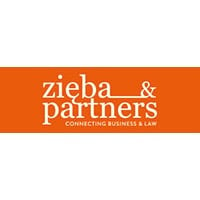

Director, legal department | Centralny Ośrodek Informatyki




Stanisław Chajewski
Director, legal department | Centralny Ośrodek Informatyki
Navigating complex negotiations between several parties with opposing interests regarding intellectual property rights to computer software. The value of the various claims of the parties was very high and the risks even greater because of the complexity of creating software solutions. The negotiations were additionally complicated by insolvency and restructuring proceedings initiated with relation to one of the parties involved. The negotiations were successful; my organisation managed to protect its interests, guarantee itself and its client the appropriate intellectual property rights to software provided by outside parties and protect itself from any future claims. The negotiations lasted almost one year.
Soft skills are crucial for in-house counsel because your client is constantly present and you need to manage their expectations, provide legal advice in a timely manner and ensure that the organisation provides you with the appropriate support and information needed to provide accurate and helpful advice.
It is crucial to be able to manage interdisciplinary teams, listen to people’s needs and communicate what you are able to provide in terms of solutions or deliverables to be successful in your role. One of the most important would have to be interpersonal skills, which are crucial for managing your team and for fostering relationships necessary to be successful at your job. But, the single most important skill for an in-house lawyer is decisiveness – you need to be able to make informed decisions quickly, even when there are legal risks to be managed. Anyone can point out risks but you have to make decisions which on one hand address those risks and on the other allow your company to continue conducting business successfully.
We utilise standard legal research tools such as LEX, LEGALIS, SzuKIO, document management systems and the like, but we would like to implement more dedicated legal tech tools, especially in task management and contract management. Because we don’t deal in many transactions, AI solutions used for document analysis are not on our radar yet, but I am interested in machine learning solutions that would help with legal research and predicting outcomes, especially with regard to litigation. A very interesting area in which legal tech could help in the future is compliance systems, as the GDPR and other comparable regulations make the compliance landscape more and more complex.
Know the business and create teams accordingly. You can be a specialist in a given field, but if you don’t understand the challenges I face and what my internal client expects from me, you can’t really help me address them. Another is specialisation – in-house lawyers have to have a wide array of knowledge, that’s why when we contract outside legal services we want someone helping us who knows everything about a given subject, otherwise we wouldn’t be looking for outside help. I know there are risks, so give me solutions and ways to manage risk – that I think is the key to providing constructive legal advice.
That said, there are a lot of good law firms in Poland, which are aware of what in-house lawyers need in their day-to-day work and work very hard to provide the best legal services possible.
FOCUS ON… DATA PROTECTION
I started my in-house career in an energy company, so I have some experience in working in what we traditionally call a regulated sector. In the gas industry I learned how to provide legal advice while always bearing in mind regulatory risk and how to manage compliance with regard to sector-specific regulations while providing legal advice.
At that time these seemed to be sector specific skills, limited to industries such as energy, banking, telecommunications and transport. But all of that changed with GDPR. Besides the obvious challenges faced by both in-house and outside counsel in implementing GDPR compliance, it ushered in a new reality in which basically every business and public entity is operating in a regulated sector.
Of course some sectors, such as telecommunications, banking, IT and e-commerce have seen particularly dramatic changes in their compliance regimes, but the truth is that for the first time basically all entities conducting business activities and even public sector entities have been forced to rethink or implement compliance strategies. GDPR has also forced almost all lawyers to reorient how they think about providing legal advice, making us all shift our focus to some aspects of compliance and risk management, even if up until now we have been focused on rather narrow specialisations. In-house lawyers have all had to start thinking about managing risk whenever personal data is involved, because the possible fines and claims have made such considerations unavoidable. We have all started adopting a way of thinking, that until now has been reserved mainly for regulatory lawyers. Compliance has always been an important part of conducting business in any jurisdiction, competition law and anticorruption mechanisms for instance are rather universal, but no regulatory action I can recall has been so comprehensive and
as widely acknowledged, as the implementation
of the GDPR.
New regulations such as the GDPR and the rising importance of data as a commodity and a focus of business activity has made new technology and compliance a primary focus of in-house legal teams and sparked a rising interest in legal tech to help lawyers adapt. From my observations this has led to a greater incentive for companies and other organisations to include lawyers very early in their undertakings, which has also meant that project management and soft skills have become much more important. You could say that GDPR did not start this increased focus on compliance, but it has definitely accelerated interest in it and has given rise to more active
forms of legal advice. The future definitely looks interesting.